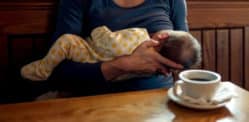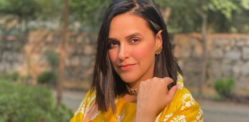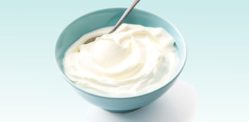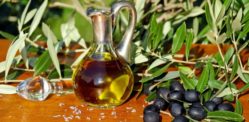“Breastfeeding lowers your risk of getting breast and ovarian cancer."
When a new mum is born a whole new perspective on life is created. The choices she now makes must be foremost for the benefit of her baby and seeking advice can be daunting.
Every mother will have to make the paramount decision about the way her baby is fed; by bottle or breast. This can cause confusion, guilt and an unwelcome added pressure.
The media is saturated with guidance, some trustworthy, others commercially driven, on the best way to feed a new born and because much of the information can be contradictory the best advise can surely only come from the experienced, and professional; our midwives.
Midwives have trained for generations, building a trustworthy source of knowledge. Some midwives have seen hundreds of babies born and develop into active bouncing toddlers and their advice has always remained consistent and concise; breast is best.

Milk from a mothers breast is unique for their baby, ‘containing the perfect natural amount of vitamins and minerals needed’ informs GP, Dr Gurid; protecting from infections and diseases.
Breast milk has been perfectly created to suit the needs of the individual baby. It’s very well documented that breastfeeding infants has immense health benefits for both the mother and her baby. A breastfed baby is at lower risk of suffering from obesity in later life and it is universally recognised that there are decreased rates of sudden infant death syndrome.
With all these great health benefits, let’s not forget the bank benefits – its free, and available whenever baby needs a feed – just at the right temperature. The emotional and mental positives of breastfeeding are very crucial.
New mothers adapting to this new way of life can experience an emotional strain however, breastfeeding can create a solid bond like no other, and give an overwhelming sense of achievement and motherly pride.
GP, Dr. Lanigan states: “Breastfeeding lowers your risk of getting breast and ovarian cancer, while naturally using up to 500 calories a day.”

This is possibly an ingrained part of culture as some poorer villages and communities simply do not have another choice. This way of life has an impact on the way Asian woman fed their children in Britain as a recent survey found that South Asian women living in the UK are also more likely to breastfeed their infants than White British women.
UNICEF have a global campaign for mothers in developing countries.
1.4 million children under 5, who live in the developing world, loose their lives needlessly to cruel infectious diseases even though the mum has a natural and free defence barrier.
Infants who are breastfed until 6 months old have six-times greater chance of survival than non-breastfed children:
“Breastfeeding drastically reduces deaths from acute respiratory infections and diarrhoea, two major child killers, as well as from other infectious diseases,” says Caroline Moore, UNICEF who is an activist for breastfeeding and currently teaching and educating mothers in developing countries about the great benefits.
Breastfeeding in the Western world, certainly isn’t the most popular way to feed your baby today. The reasons for the decline in breast and choosing the bottle are personal, sometimes medical and sceptical. Seemingly, an unnecessary social stigma has been attached to breast feeding.

Milk can be frozen or refrigerated (at 4 degrees C or colder), for up to five days. Store it at the back of the fridge, where it’s coldest, away from meat, eggs, or uncooked foods. In a fridge’s freezer compartment, for two weeks, and even kept for 6 months in a home freezer (at -18 degrees C or lower).
How a mum chooses to feed their baby should be for the benefit or her own and her baby’s well-being. Be reminded of the mass health benefits associated to breastfeeding as the choices are made. Once breastfeeding has begun persist as long as possible, to avoid drying up.
A small amount of breast feeding is better than none at all and new mothers should be proud of their efforts and praised – it’s not easy. Nipples can become sore however your midwife will be sure to guide and advise the best ointments and lotions to ease and cure.
Building a bond with baby is sure to help deter those commonly known baby blues days, and always be sure to seek professional medical advice from your midwife when making any changes to the way you feed.





























































